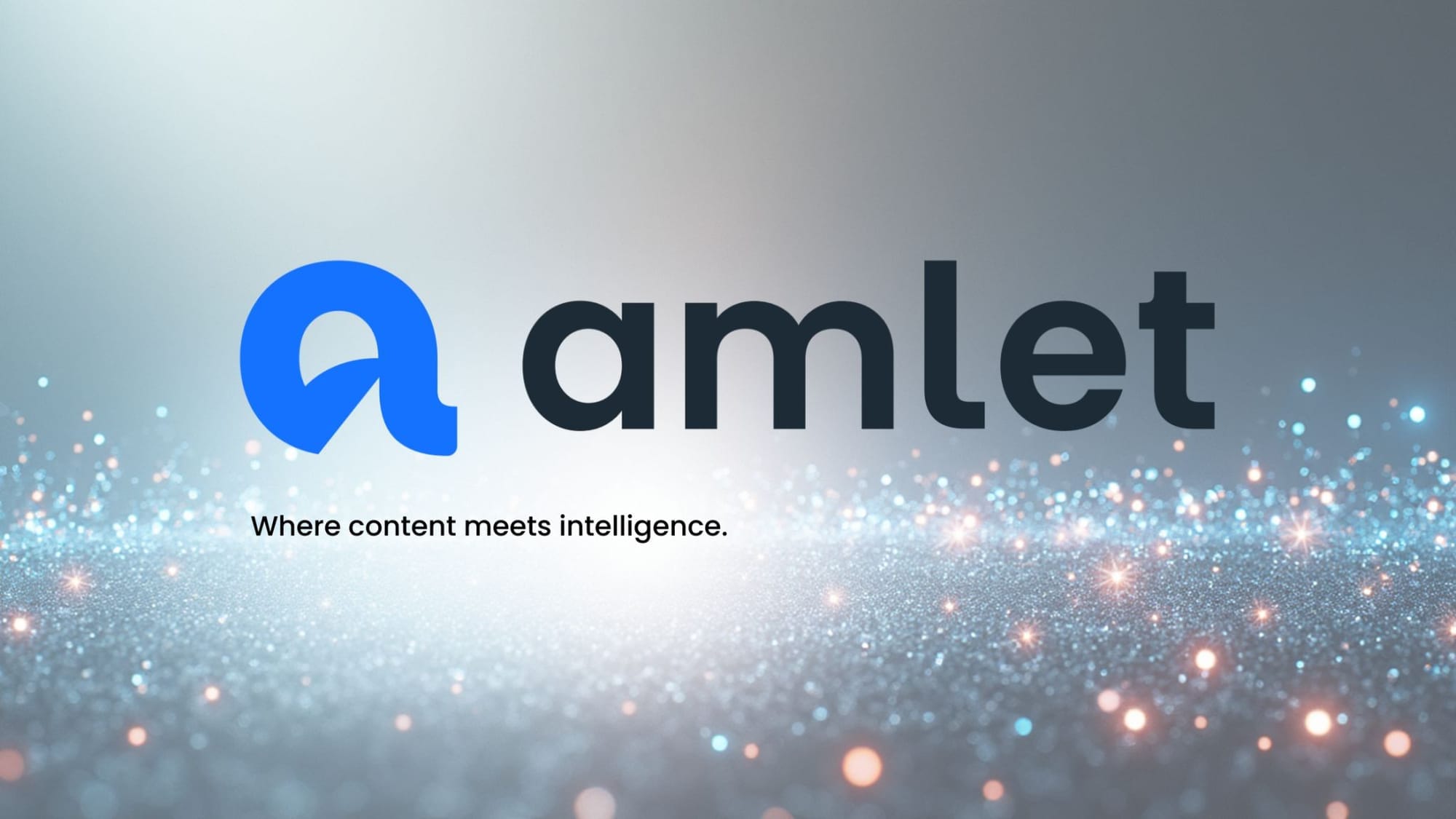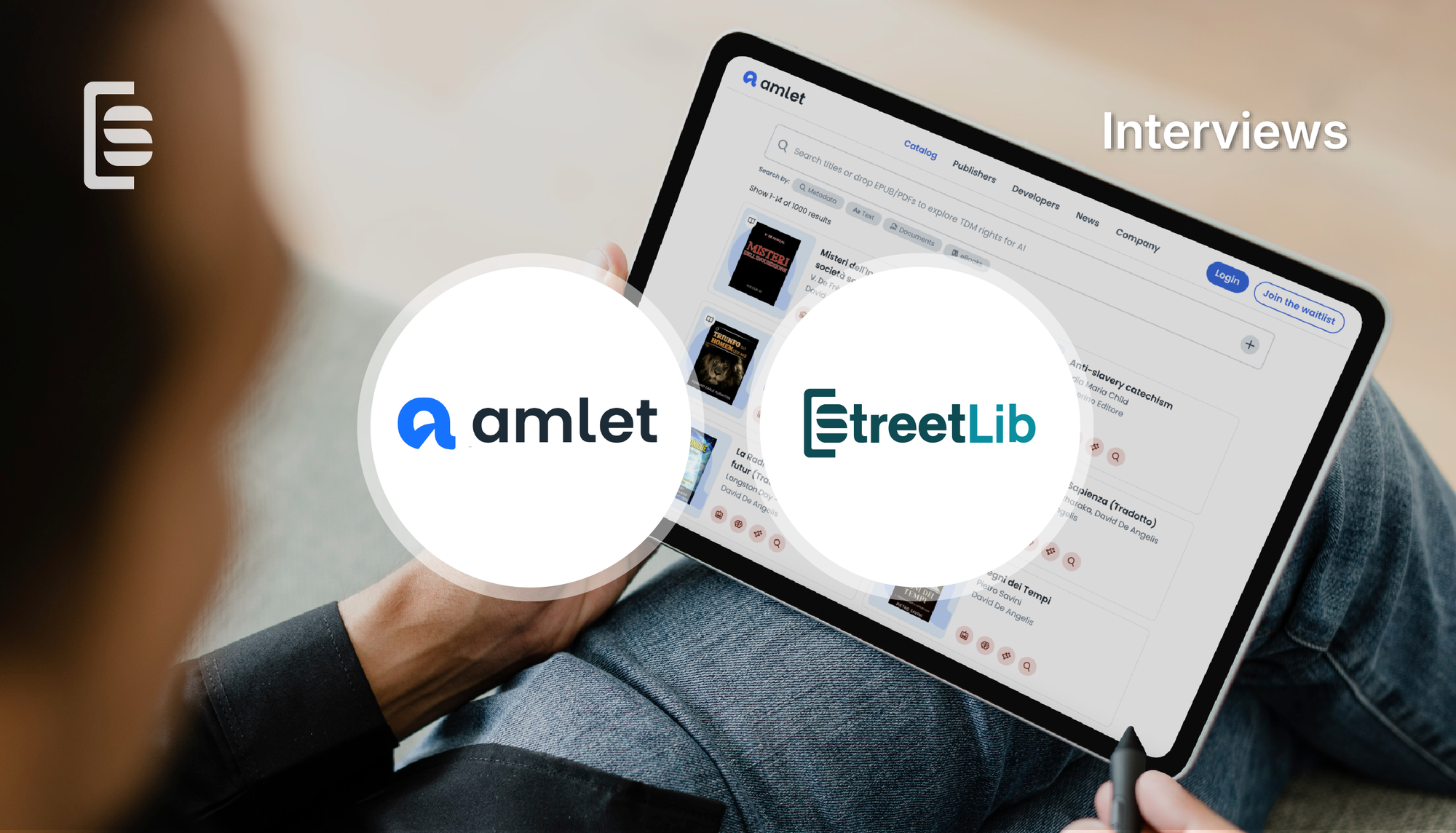Artificial intelligence is reshaping the way content is created, used, and distributed. After years of AI models being trained on large volumes of content without authorization, the publishing world finally has a solution that could change the game.
StreetLib has launched a new partnership with Amlet, the first platform dedicated to the registration, management, and licensing of digital content for the AI economy. The goal is clear: to give authors and publishers the tools to protect, track, and monetize their works in the age of artificial intelligence, fully compliant with the new European digital rights regulations.
We spoke with Giacomo D’Angelo, CEO of StreetLib and founder of Amlet, to learn how this project was born, what makes it innovative, and what concrete benefits it offers to those publishing with StreetLib.
Let’s start from the beginning: what is Amlet, and what need does it address?
Amlet is the world’s first public registry dedicated to Text & Data Mining (TDM), the technique that allows AI systems to analyze and “read” large volumes of text, images, or other digital materials in order to learn.
In recent years, we’ve seen tech companies build multi-billion-dollar models using content often without consent or recognition. Amlet was born from this awareness: the idea is to provide authors and publishers with a trusted infrastructure to register, manage, and—if they choose—license their works transparently within the AI economy.
It’s an important step forward in returning control to creators over their content and, above all, the value it generates.
There’s a lot of talk about the “post-scraping era.” What does this mean, and why is it so important for publishers and authors today?
For years, AI systems have “learned” by scraping the web—including books, articles, and other creative works—without rights holders knowing. The post-scraping era marks the end of this phase.
With the European AI Act and new international regulations coming into effect, companies developing AI models will need to prove the origin of their data and respect the usage licenses of the content.
In this new scenario, publishers and authors must be able to say: “This is my content, and these are the rules for how it can be used.” Amlet was created precisely for this purpose: to make every digital work traceable and verifiable, allowing algorithms to recognize it and comply with its usage conditions.

What makes Amlet innovative compared to existing digital rights management solutions? How does it help build a fairer relationship between content creators and AI companies?
The real innovation of Amlet is that it combines a technological standard with a legal framework in a single global infrastructure. Every registered work receives an ISCC (International Standard Content Code), an ISO identifier that acts as a universal “digital fingerprint” generated directly from the content itself.
This allows anyone—even companies training AI models—to automatically recognize a work, verify who holds its rights, and know whether it can be used.
In this way, Amlet acts as a transparent intermediary between content creators (authors, publishers, artists) and AI companies, fostering a fair and sustainable data economy.
As I often say, it’s not about stopping AI, but about ensuring it grows while respecting the human work it relies on.
What are the concrete benefits for authors and publishers working with StreetLib?
Thanks to the partnership between StreetLib and Amlet, all authors and publishers using our platform can register their works for free in the public TDM registry.
This brings two immediate benefits:
- Stronger digital rights protection: Your content becomes traceable, verifiable, and visible to AI companies.
- Greater visibility and new opportunities: Registered titles enter a global infrastructure connecting creators with tech companies seeking high-quality content they can legally use.
It’s both a safeguard and a gateway to new ways of monetizing and leveraging your work.
Looking ahead: how do you envision the role of AI in publishing in the coming years, and how can StreetLib contribute to this transformation?
Artificial intelligence is not a threat to publishing if we learn to manage it responsibly. I believe that in the coming years, AI will become an integral part of editorial processes—from content creation to marketing, and even the reading experience—but its development must rely on high-quality, authorized, and traceable data.
StreetLib aims to play a leading role in this transformation by promoting a model of ethical and open innovation. With Amlet, we provide authors and publishers with concrete tools to participate safely, transparently, and profitably in the emerging AI economy.
As always, our goal remains the same: to put technology at the service of those who bring books to life.
The partnership between StreetLib and Amlet marks a new step in the evolution of digital publishing: a model that places transparency, protection, and the value of creative work at the center in the age of artificial intelligence.

